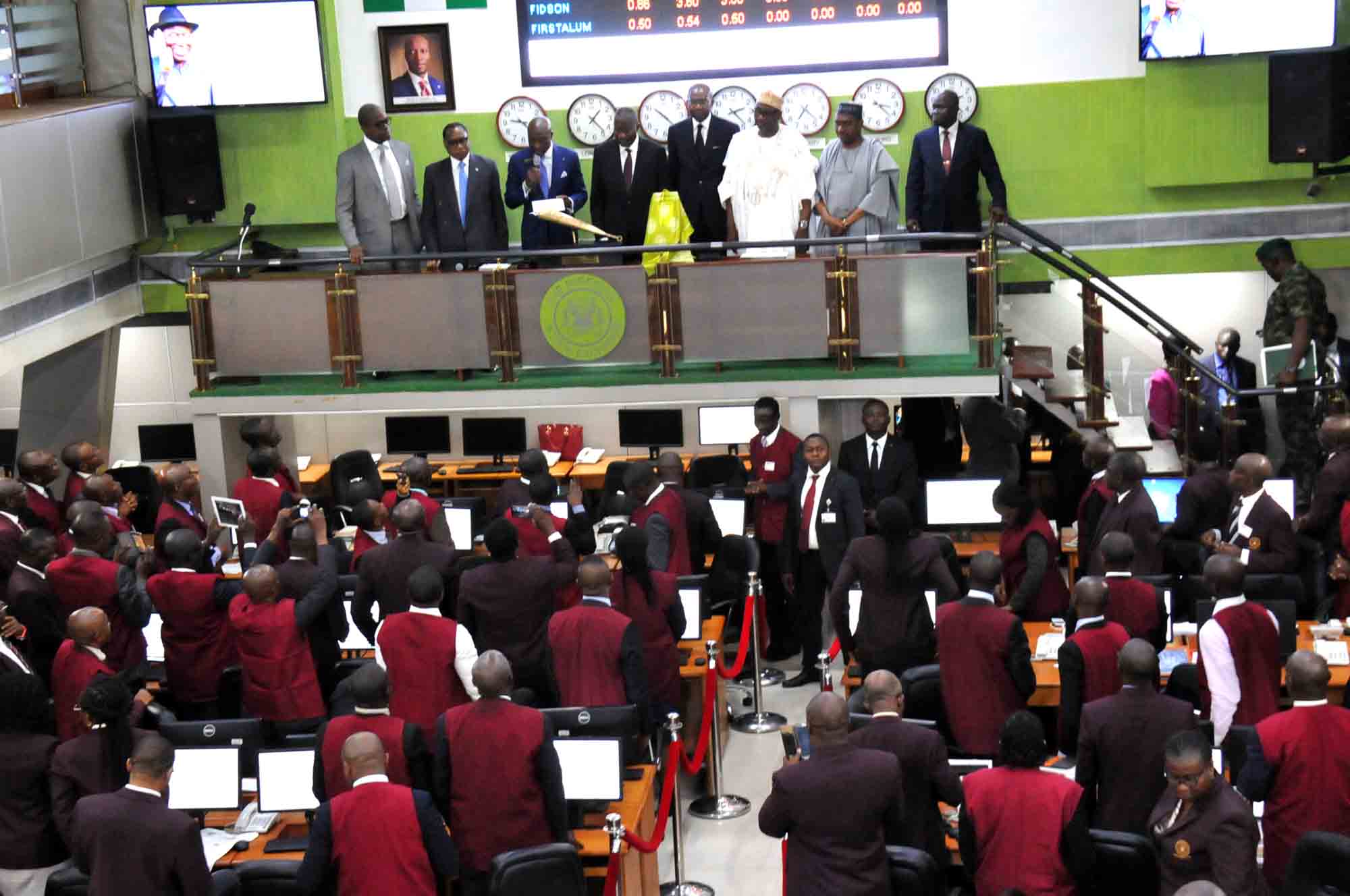- Nigerian Stock Index Rises as Bank Shares Gain
Nigerian stocks closed higher on Friday for the second consecutive day, lifted by shares in banking, cement and a consumer goods maker.
But the stock market cumulatively depreciated by 3.35 per cent this week, owing majorly to profit-taking activities by investors following major gains the past weeks.
Reuters reported that the main share index ended up by 1.66 per cent at 36,920 points after bargain hunters returned to take positions in Guaranty Trust Bank Plc and Zenith Bank Plc, two top lenders shunned early in the week over a disappointing interim dividend payout.
GTBank shares rose by 6.47 per cent to close at N39.50, while Zenith Bank gained 6.61 per cent to close at N24.53.
The index of Nigeria’s top 10 banks gained 3.97 per cent to lift the index.
The stock index had dropped to a 16-day low on Wednesday as some investors cashed in profits after recent gains.
The market had rallied for eight consecutive weeks and peaked at a 33-month high last week before profit takers took advantage of the gains.
Other gainers include Dangote Cement, which accounts for a third of the market capitalisation. The cement firm was up by 2.37 per cent to close at N225, FCMB Group rose by 5.36 per cent, PZ Cussons gained 4.99 per cent, while energy company Oando rose by 3.94 per cent.
Meanwhile, after closing positively for five consecutive weeks, the Nigerian bourse slid into the negative territory this week.
Thus, the year-to-date return of the Nigerian Stock Exchange All-Share Index slipped to 37.38 per cent at the close of trading activities for the week, market data on a Friday showed.
Volume of transactions fell by 8.13 per cent, likewise market turnover which declined by 13.27 per cent.
There were 19 gainers and 57 losers in the week.
Fidson Healthcare Plc led the gainers’ chart for the week after appreciating by 9.70 per cent to close at N3.28.
Continental Reinsurance Plc followed on the gainers’ table, adding 6.56 per cent for the five trading days of the week.
These were followed by Universal Press Plc, Berger Paints Plc and GlaxosmithKline Consumer Plc, which respectively appreciated by 6.34 per cent, five per cent and five per cent.
On the other hand, for the whole week, the Cement Company of Northern Nigeria Plc, NEM Insurance Plc, Jaiz Bank Plc, Total Nigeria Plc and Morison Industries Plc emerged the five worst performing stocks, shedding 13.91 per cent, 12.73 per cent, 9.52 per cent, 8.39 per cent and 8.16 per cent, respectively.
The Nigerian stock market, on Thursday, had appreciated by N74bn with Eterna Plc, Mobil Oil Nigeria Plc, Nigerian Avation Handling Company Plc, Cement Company of Northern Nigeria Plc and Cutix Plc emerging as the top losers.
The market closed on a positive note and the NSE ASI advanced by 0.59 per cent to settle year to date return at 35.13 per cent.
Despite Thursday’s gains, there were 15 advancers and 32 losers.
A total of 225.140 million shares valued at N5.479bn exchanged hands in 5,110 deals.
Fidson Healthcare Was said to have led the gainers’ list, increasing by five per cent to close at N3.15. Also on the gainers’ list were May & Baker Nigeria Plc, Flour Mills of Nigeria Plc, Livestock Feeds Plc and Continental Reinsurance Plc, which appreciated by 4.98 per cent, 4.94 per cent, 4.94 per cent and 4.84 per cent, respectively.


 Billionaire Watch3 weeks ago
Billionaire Watch3 weeks ago
 Startups4 weeks ago
Startups4 weeks ago
 News4 weeks ago
News4 weeks ago
 News4 weeks ago
News4 weeks ago
 Bitcoin4 weeks ago
Bitcoin4 weeks ago
 Naira4 weeks ago
Naira4 weeks ago
 Forex3 weeks ago
Forex3 weeks ago
 Treasury Bills4 weeks ago
Treasury Bills4 weeks ago
























